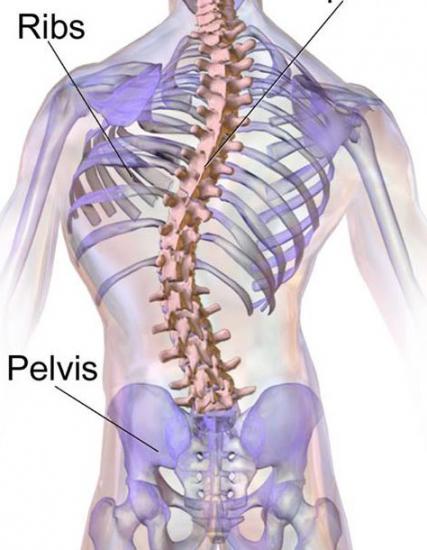Kalra Brain & Spine
At KBS, we treat our patients as neighbors, friends, and family. Our goal is to educate you, treat your symptoms, and help you recover as fast as possible
Scoliosis
Scoliosis is a sideways curve of the spine often noted to create the shape of a “c” or an “s” due to the spine twisting. Scoliosis occurs in both adults and children, although it occurs most often just before the growth spurt of puberty. Symptoms vary depending on age and severity of the scoliosis curve.
Symptoms
Most cases are mild, exhibiting few symptoms. Some people may experience:
- Back pain
- Leaning to one side
- Muscle spasms
- Physical deformity (uneven shoulders and/or waist)
Risk Factors/Causes
We don’t know what causes the most common type of scoliosis — although it appears to have a hereditary element, because it tends to run in families. Less common types of scoliosis may be caused by:
- Neuromuscular conditions, such as cerebral palsy or muscular dystrophy
- Birth defects affecting the development of the bones of the spine
- Injuries to or infections of the spine
Risk factors for developing the most common type of scoliosis include:
- Age. Signs and symptoms typically begin during the growth spurt that occurs just prior to puberty.
- Gender. Although both boys and girls develop mild scoliosis at about the same rate, girls have a much higher risk of the curve worsening and requiring treatment.
- Family history. Scoliosis can run in families, but most children with scoliosis don’t have a family history of the disease.
Treatment
Treatment depends on the severity of the condition. In many cases, no treatment is necessary. When treatment is deemed necessary, options include:
- Conservative Management. Scoliosis that can be resolved without significant intervention will be treated with injections and physical therapy to straighten the back.
- Surgery. Severe scoliosis typically progresses with time, so Dr. Kalra might suggest scoliosis surgery to reduce the severity of the spinal curve and to prevent progression. The most common type of scoliosis surgery is spinal fusion.
New Hope From a Spine Expert
When world-class training meets hometown values deeply rooted in family and community, the result is the kind of medical care you’ve always hoped for. This describes Kalra Brain & Spine, the practice of Dr. Ricky Kalra, who specializes in the most up-to-date evidence-based neurological care. If your condition requires neurosurgery, schedule a consultation with Dr. Kalra today.
Request an Appointment
Contact us
Get In Touch
Address
Kalra Brain & Spine
5899 Preston Road
Suite 1303
Frisco, TX 75034
Phone
972-905-9226

Fax
972-905-9269

